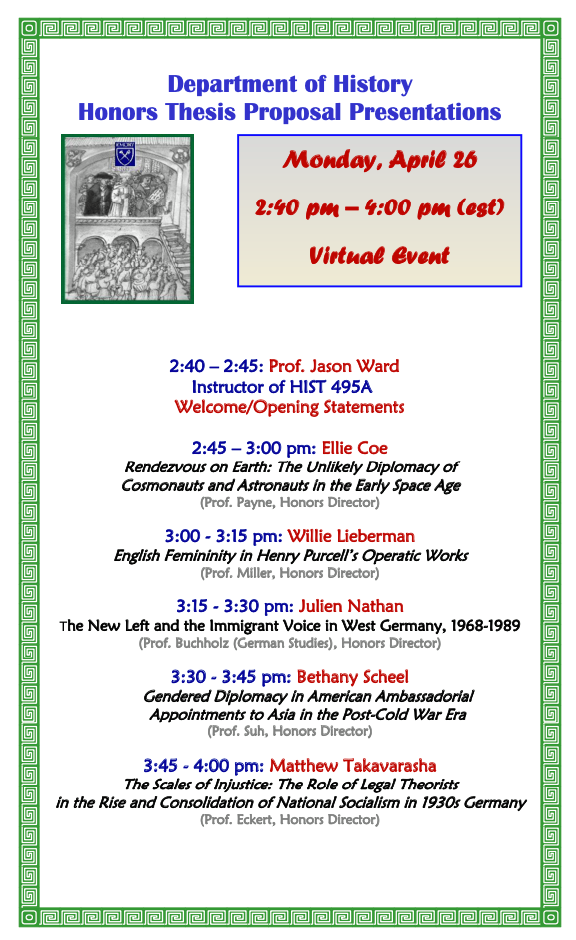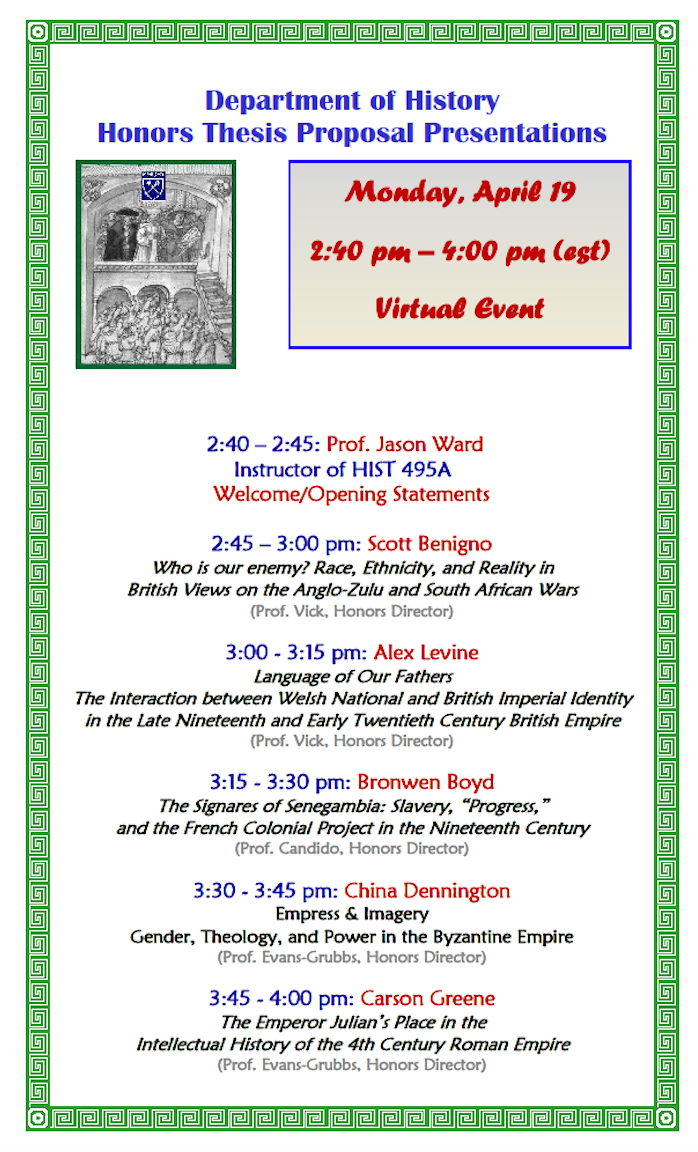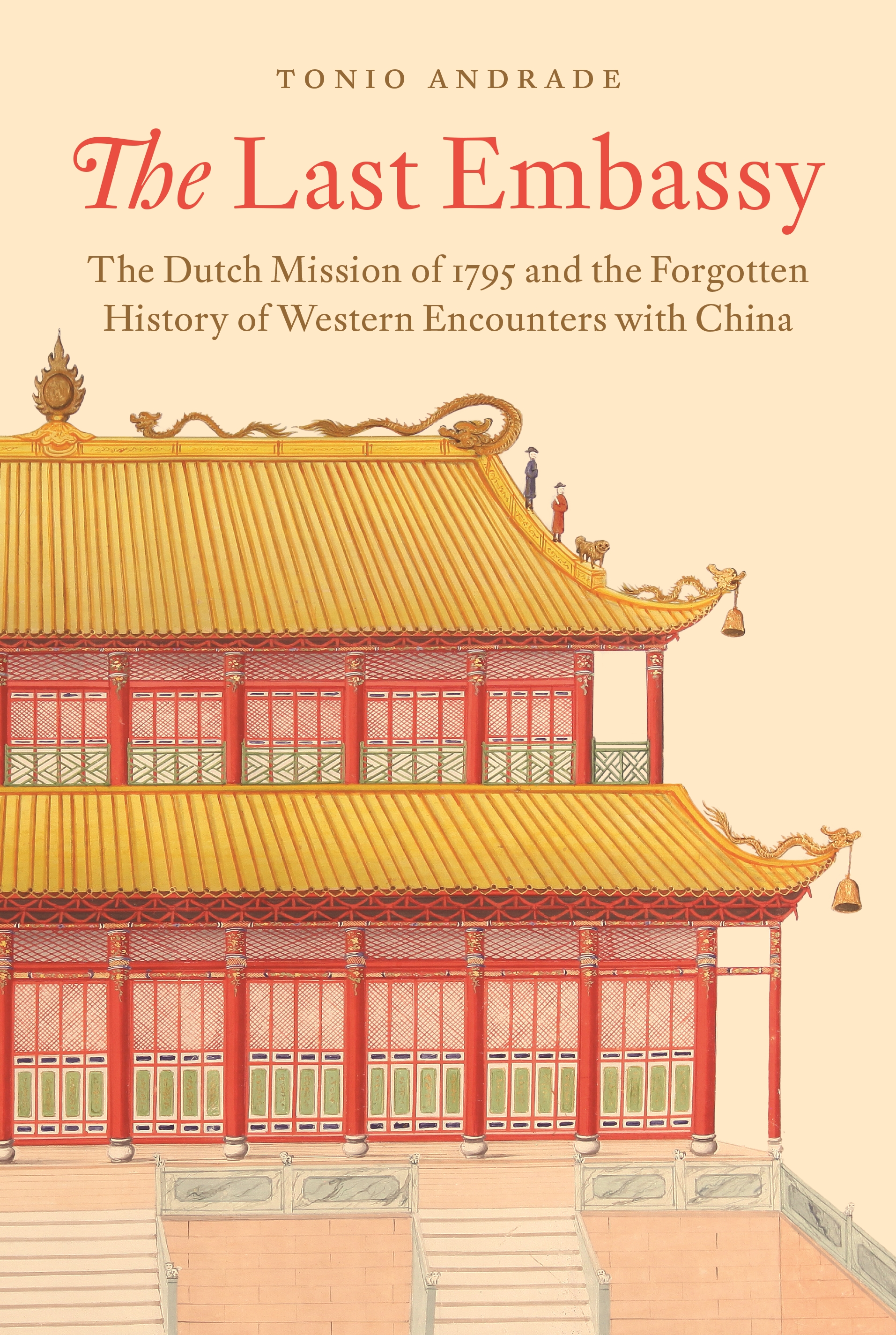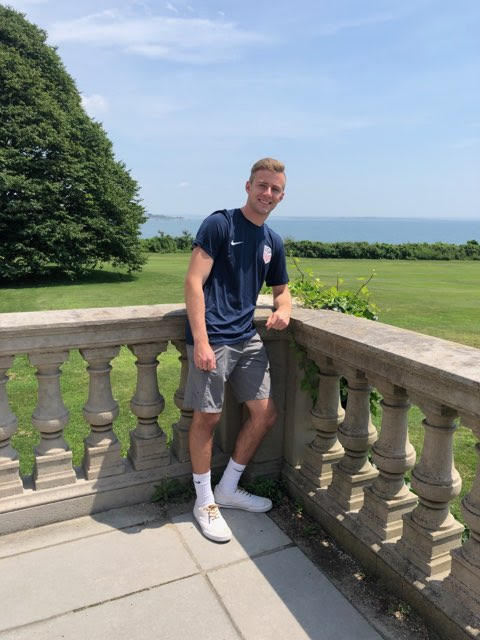History major and honors student Cameron Katz recently published a piece on the blog of Emory’s Fox Center for Humanistic Inquiry reflecting on her time as an undergraduate humanities fellow. Katz discusses her research, which centers on Florida’s felony disenfranchisement law, as well as how the pandemic has shaped her experience as a student and scholar. Read an excerpt from the post below, along with the full piece: “Shared Scholarship During the Pandemic.”
“The opportunity to present my research to a group of scholars was also very beneficial. My history honors thesis examines the racial implications of Florida’s felony disenfranchisement law – the rule which revokes a person’s right to vote on account of a felony conviction – which was on the books from 1838 to 2018. Because my temporal framework is so large, working to condense it to a short presentation for an audience less familiar with the history really helped me to streamline my main argument, which I think is one of the most challenging aspects of large projects. Hearing feedback about my presentation allowed me to narrow my presentation even further so that I could convey my work in an accessible and informative manner. Later this month, I will be presenting my research at the Richard Macksey National Undergraduate Humanities Symposium so the additional practice at the Fox Center has helped me to prepare.“




